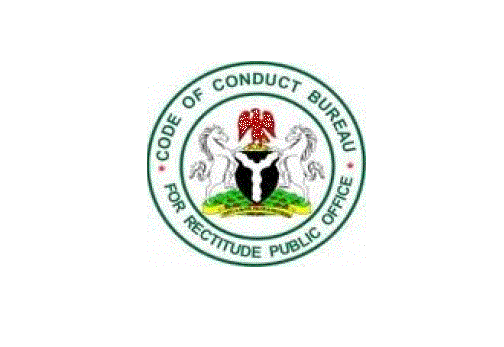Submission of asset declaration forms will soon be done online, in an effort to make the exercise easier.
The Chairman of Code of Conduct Bureau (CCB), Mr Danladi Umar, gave the assurance on Wednesday in Lagos at a meeting on “Promoting Transparency and Accountability in Asset Declaration by High-Ranking Public Officers”.
The News Agency of Nigeria (NAN) reports that the meeting was organised by the Socio-Economic Rights and Accountability Project.
Umar, who was represented by his Special Assistant, Dr Mustapha Musa, said the website for submission of asset declaration forms was ready and would be available for use for all stakeholders.
“Our asset declaration website is live and online with all security features and certification necessary for its takeoff.
“The website will be launched very soon. Our staff that will be responsible for its operation will soon be receiving documents.
“Information on the website regarding asset declaration can only be accessed by the CCB, and the site is available at https://assetdeclaration@ccb.gov.ng,” he said.
Umar said that the CCB could only give access to information regarding declaration of assets to any citizen on application, as provided by the Freedom of Information (FOI) Act subject to conditions given by the National Assembly.
He noted that the rule was subject to the provisions of Paragraph 3 (c) Part 1 of the Third Schedule of the Constitution of the Federal Republic of Nigeria.
“This is a specific provision that is exclusive to the CCB.
“The provisions of the FOI Act are general, general on all agencies, ministries, departments and bodies of government but this paragraph is specific on the Code of Conduct Bureau.
“It is not that the CCB is not willing to give information to applicants.
“The constitution states that we can only give such information subject to some conditions or guidelines to be given by the National Assembly.
“The National Assembly is yet to give any guidelines; therefore, the hands of the CCB are tied regarding this position,” he said.
A Senior Advocate of Nigeria (SAN), Mr Tayo Oyetibo, noted at the event that whether members of the public should have access to information on assets of a public officer had been debated nationally for years.
The SAN, who was represented by Mrs Mobisola Odimegwu, the Managing Associate of Tayo Oyetibo and Co., said that the courts could intervene in situations where a citizen’s request for information was denied by CCB.
“The Court of Appeal, in the case of Code of Conduct Bureau versus Nwankwo, noted that there is a restriction, that the National Assembly has to provide terms and conditions.
“However, it said, that these terms and conditions had not been provided, does not obliterate the fact that citizens have the right to access this information.
“The court noted that the asset declaration of a public servant is a public document.
“Paragraph 3 (c) of the Third Schedule of the Constitution deems any citizen of the country right to inspect asset declaration of any public servant.
“Since the right to inspect the asset declaration of public officers is a constitutional right, failure of the National Assembly to prescribe the terms and conditions does not obliterate or take away that right,” he said.
Oyetibo said that asset declaration of public officers engendered public confidence in the governance process and served as a means of checks and balances.
“Public officers are not accountable to the CCB, they are accountable to the citizens of the country.
“Public office comes with the burden of public scrutiny.
“Anyone who cannot stand scrutiny should not hold public office,” he said.




